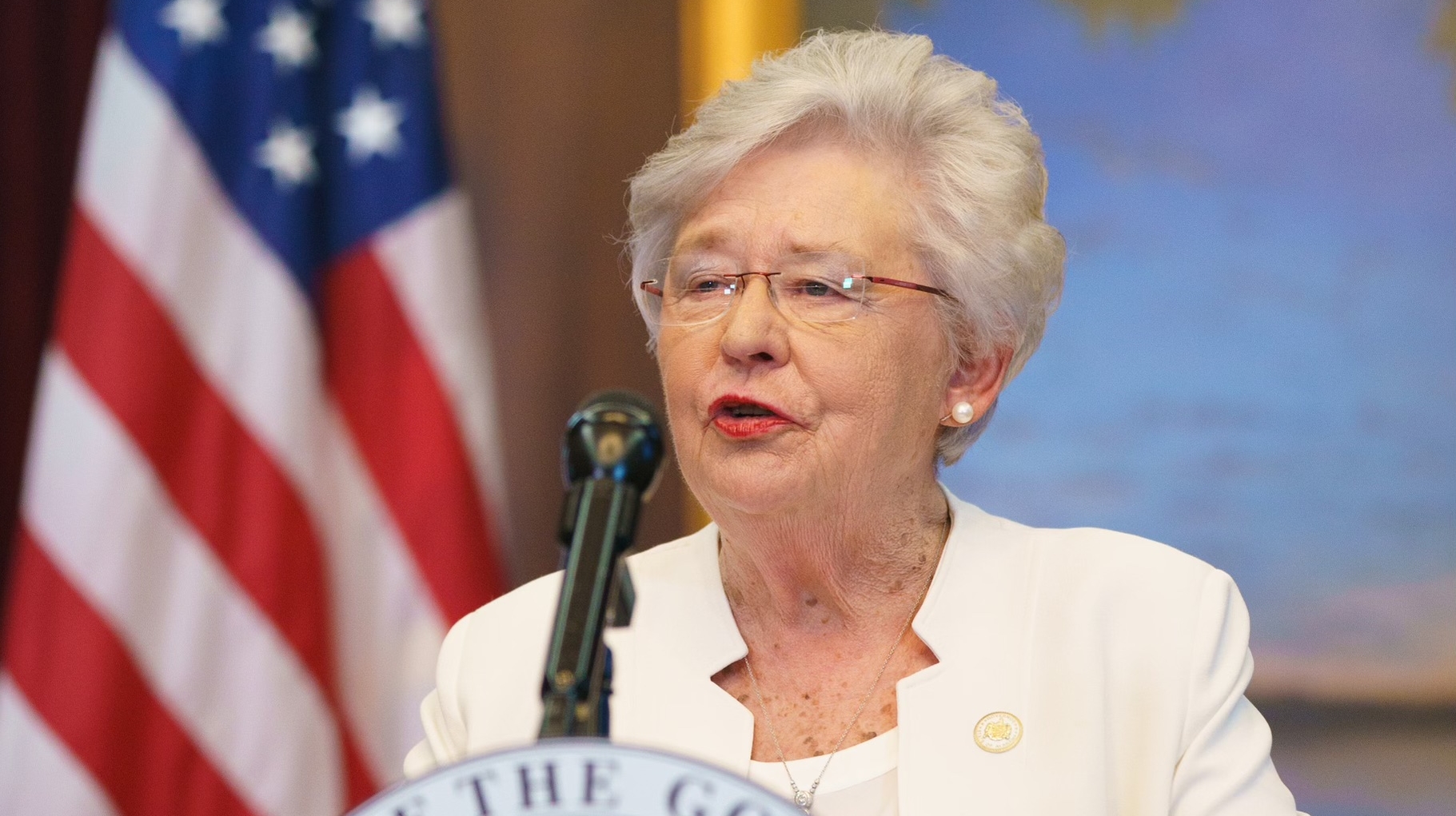Governors in states that don’t have COVID-19 vaccine mandates, or outright ban them, have significantly lower COVID response approval ratings than other governors, according to a recently published study.
In states with vaccine mandates, 52 percent of those polled approved of their governor’s handling of the pandemic, while just 42 percent of those asked in states with no mandates said as much and just 36 percent said so in states that banned vaccine mandates.
Those findings hold true even after accounting for partisanship, race, gender, vaccination status, the governor’s political affiliation and the state’s average per capita COVID-19 cases, according to the study.
The COVID States Project survey was a joint project of Northeastern University, Harvard University, Rutgers University and Northwestern University. More than 216,000 people were surveyed in all 50 states and the District of Columbia between April 17, 2020, and September 27, 2021.
Gov. Kay Ivey’s coronavirus response approval rating among Alabamians polled dropped from 60 percent in late April 2020, to 44 percent by late August 2021. It increased slightly to 54 percent by February 2021 before dipping to an all-time poll low of 41 percent in September.
Alabama’s latest COVID surge, driven by the more contagious delta variant, has been receding in recent weeks, but over the summer saw cases, hospitalizations and COVID deaths reach near all-time highs. The state in September led the nation in COVID deaths per capita and Alabama’s supply of ICU beds was at one point during this last surge more than 180 beds fewer than patients requiring that critical care.
Ivey on May 25 signed into law a Republican-backed bill that bans “vaccine passports” and prevents banning people’s access to schools and businesses due to immunization status, but the toothless law has no enforcement mechanism, so it’s unclear what, if anything, a person who ran afoul of the law would face.
Ivey has continued to encourage vaccinations, but has been vocal in her opposition to any vaccine mandate, and spoke out against any such measure after President Joe Biden announced orders that all businesses with more than 100 employees must require workers to get vaccinated against COVID or test them weekly, among other measures to fight the virus.
“I certainly opposed any kind of government mandate for vaccinations. I signed the vaccine ban bill,” Ivey said on Sept. 22.
Alabama has the fourth-lowest percentage of residents fully vaccinated against COVID in the nation, according to the Centers for Disease Control and Prevention, at 44 percent.
Ivey’s communications director Gina Maiola, in a statement to APR said the state continues to trend in the right direction as hospitalizations and cases go down and more and more Alabamians are getting vaccinated.
“We are also experiencing one of the strongest economic comebacks in the country, getting Alabamians back to work and things rolling again. As Governor Ivey travels the state, she continuously receives praise for her balanced leadership during the pandemic,” Maiola said. “As you know, and for that matter, people across the country know, Governor Ivey is a champion of the vaccine, while standing strong against overreaching mandates. She remains firm in that position, and Alabamians overwhelmingly support that position.”
Researchers in the study noted, however, that among Alabamians polled, Ivey’s approval rating for her COVID response fell from 60 percent in late April 2020 to 41 percent in September. Additionally, after a jump in COVID vaccinations in Alabama during the last surge of cases this summer, the 14-day average of daily doses administered has fallen by more than half.
“Our findings really suggest that individuals in our survey were rewarding these governors who took proactive steps to combat the pandemic and they were punishing governors who prohibited public health policies that would combat the pandemic like vaccine mandates,” Alauna C. Safarpour, a fellow at the Harvard Kennedy School’s Shorenstein Center on Media, Politics, and Public Policy and one of the project’s researcher, told Politico.
Alabamians polled gave President Joe Biden a 54 percent coronavirus approval rating in late April 2020, and slightly higher than Ivey’s approval rating in late August 2021, at 46 percent to her 44 percent. Biden’s coronavirus approval rating among Alabamians fell from 52 percent in April 2021, to 39 percent in September.
Despite President Biden’s approval rating on the pandemic dropping since June, Biden’s coronavirus approval rating remains higher than Trump’s at this point last year, at 49 percent to Trump’s 34 percent, the poll found.
The polls also showed a partisan divide that grew after the November presidential election. Republicans polled showed their coronavirus approval rating for Republican governors fell from 67 percent in October 2020, to 54 percent in December and January.
Democrats polled showed their coronavirus approval rating for Republican governors increased from 33 percent in October, 2020, to 38 percent in December and January.
Republicans asked said their approval rating for Democratic governors fell from 44 percent in October 2020, to 34 percent in December and January, while Democrats polled said their approval rating of Democratic governors increased from 66 percent to 71 percent over that time.
Governors of states with high numbers of cases and vaccine mandate bans have the lowest approval ratings.
“In states with both the highest average daily cases and where vaccine mandates are prohibited, one third (33 percent) approve of their governor’s handling of the pandemic,” the report states. “Even in states with the lowest average cases, more respondents approve of their governor when a vaccine mandate is in place: 54 percent approve in states with low cases and vaccine mandates, compared to 46 percent in low cases states without vaccine mandates or where they are prohibited.”
Governor approval rating along the unvaccinated remained low across all state policy decisions, but among the vaccinated approval ratings varied. The vaccinated’s governor approval rating in states with vaccine mandates was 60 percent, but dropped to 40 percent in states without mandates and 37 percent in states that ban vaccine mandates.



















































